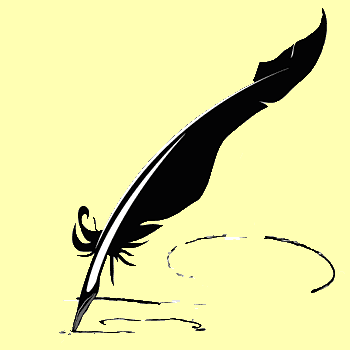Séjour de Norbert LEY à Yang Chow-C ...

.jpg)
.jpg)
COPIE.
Vendredi, le 7 septembre 1945
Chère Maman, Cher Papa, Cher frangin et famille,
Voici donc, après quelques années, la première lettre que je puis vous écrire sans aucun souci de censure. Le temps me manquera pour vous en dire long sur notre vie ici car il est près de 17 h., il fait noir à 19 h. et je devrai remettre la lettre avant 9 h. demain.
Tout est à présent précipité dans ce camp (distributions d'objets, nouvelles, levées de courrier), tout sauf, semble-t-il, les préparatifs pour notre retour. Car la cessation d'hostilités a beau dater de mi-août, aucun préparatif ne paraît encore fait, voire même en cours pour nous sortir d'ici. Nous avons beau savoir n'être plus ici pour longtemps nous ne percevons pas matériellement notre "liberté” et chaque jour nous pèse qui passe sans nous apporter de décision quant à notre sortie. Il est question de nous faire rentrer par Pukow, comme nous sommes venus. Mais le chemin de fer étant régulièrement attaqué, on envisage comme plus sûre, la voie maritime comprenant une escale à Shanghai; nous reprendrons ainsi contact avec les 23 autres belges, de Lunghwa (depuis le 31 août sortis de camp et installés au Park Hôtel, Shanghai) et pourrions rentrer tous ensemble par mer, voire même comme certains s'y attendent, par air; nous sommes tous si indispensables, n'est-ce pas ?? En attendant, tout reste en flottement, aucune communication n'ayant pu s'établir avec Haesaerts, Tientsin. Sans doute les premiers contacts seront-ils établis par messager, après maintes péripéties, comme au Moyen-âge. Ca quand existent la radiophonie ou, à la rigueur, l'avion.
Au camp même, notre condition nutritive s'est améliorées sans doute en restons-nous au repas quotidien (déjeuner), la chaleur ne nous en faisant pas désirer davantage; mais la ragougnasse d'avant est devenue une sorte de bon ragoût, grâce à l'influence de pommes de terre (les premières depuis que nous sommes au camp!), de vrais gros oignons, et d'un peu plus de viande; malheureusement, les légumes ont diminué.
Les conditions de travail, de vie et de "confort” sont, par contre, rigoureusement inchangées: Ginette pleure toujours sur le sort des pauvres oignons qu'il lui faut peler, je reste boulanger et, du four, suis retombé dans le pétrin; mais c'est la vie dans notre infâme cagibi (11 m² pour 3 âmes) sans lumière, ni air, ni place pour se retourner, qui nous obsède le plus, tout cela sans parler du bruit, de rats toute l'année et des moustiques de juin à octobre.
Pas mal de diversions à la routine du camp se sont succédées depuis mi-août. D'invraisemblables rumeurs se succèdent du 10 au 2O août, jour où notre situation fut clarifiée par une proclamation officieuse. Depuis, quelques visites de chinois et d'amis d'internés. Aussi, acquisition d'un petit poste récepteur pour le camp. Mais ça ne fonctionne qu'aux heures de courant c.à.d. d'environ 18h.30 à 23 h.
Le 31 août, l'autorisation de sortir librement du camp ayant été donnée - quoique déconseillée et sans responsabilité du camp - nous en avons profité pour faire un tour ”en ville”. Cité chinoise propre, magasins assez bien fournis et bien tenus, commerçants accueillants, soldats chinois à l'air méfiant mais pas franchement mauvais. Les faciès japs sont plus fermés qu'auparavant, humbles chez les civils, dégoûtés chez les militaires. Le lendemain, 1er.et vers 13 h.45, un vrombissement sonore au dessus de nos têtes nous attira tous dehors: une minute plus tard, un quadrimoteur américain genre "Forteresse volante” commença une série de passages à très basse altitude (30 à 40 m.) sur le camp, pour nous montrer, sans doute, que nous n'étions point oubliés en ce trou perdu. Le surlendemain 3 crt., arrivée d'une petite délégation américaine avec des nouvelles, un petit émetteur-récepteur militaire (génératrice à main), et des instructions de s'informer quant à ceux d’entre nous qui devraient les premiers être rendus à une vie civile normale. Accueil enthousiaste, faut-il le dire!.
Entretemps, et pour montrer la sympathie et le bon vouloir indigènes locales, envoi ça et là, de la part d’autorités diverses, de viande, d’œufs, une fois de poulets, de poires et même d’indemnités en espèces. Ainsi sommes-nous à nous trois, plus que millionnaires en dollars ...locaux! Nous avons, en effet, touché ensemble CRB$ 1.700.000,- soit l’équivalent d’US.$ 20.- Puis, le 5 crt. événements et excitation d’autres ordres: trois quadrimoteurs américains du genre de celui venu le 1er., nous bombardèrent de parachutes de ravitaillement. Nourriture sèche et liquide en conserve, chocolat, chewing gum, souliers ou plutôt fortes bottines de toutes tailles, salopettes kaki, essuie-mains, mouchoirs, principalement. Le tout, abondant et de bonne qualité. Malheureusement, il y eut des dégâts et aux colis parachutés (trop lourds pour leurs petits parachutes et s’en détachant souvent) et aux endroits où ils tombaient, toitures surtout, dans le camp et en dehors. Il y eut même un indigène tué et un blessé au dehors. N’empêche que voilà une nation généreuse, sachant faire en grand, à profusion. Nous sommes maintenant débordes de nourriture et en emporterons à Tientsin la plus grande partie.
Le temps me manque pour vous en écrire plus long cette fois.
A très bientôt, j’espère, des nouvelles moins hâtives et, en attendant, nos sentiments les plus affectueux à la très proche et plus chère famille.
Norbert
(écrit à la main par Charles Ley: Reçu par poste belge sans indications, timbres ou cachets quelconques. Avec mes compliments, (signé) Charles Ley)

COPY.
Friday, September 7, 1945
Dear Mom, Dear Dad, Dear brother and family,
Here, then, after a few years, the first letter I can write to you without any concern for censorship. I will not have time to tell you much about our life here because it is almost 5 p.m., it is dark at 7 p.m. and I will have to post the letter before 9 a.m. tomorrow.
Everything is now rushed into this camp (distribution of objects, news, collection of mail), everything except, it seems, the preparations for our return. Because the cessation of hostilities may well date from mid-August, no preparation seems yet made, or even underway to get us out of here. We may know that we are no longer here for a long time but we do not physically perceive our "freedom" and each day weighs on us without passing a decision as to our exit. There is talk of getting us back in by Pukow, as we are But the railroad being regularly attacked, we consider as safer, the seaway including a stopover in Shanghai; we will thus resume contact with the 23 other Belgians, from Lunghwa (since August 31 out of camp and installed in the Park Hotel, Shanghai) and we could all go back by sea, or even as some expect, by air; we are all so essential, aren't we?? In the meantime, everything remains in flux, no communication having been able to establish themselves with Haesaerts, Tientsin, no doubt the first contacts will be established by messenger, after many adventures, as in the Middle Ages, when radio or, if need be, the plane.
At the camp itself, our nutritional condition has undoubtedly improved by staying with the daily meal (lunch), the heat not making us want more; but the stew from before has become a kind of good stew, thanks to the influence of potatoes (the first since we've been in camp!), real big onions, and a little more meat; unfortunately the vegetables have decreased.
The working, living and "comfort" conditions are, on the other hand, rigorously unchanged: Ginette always cries over the fate of the poor onions that she has to peel; I remain a baker and, from the oven, have fallen back into trouble but it is life in our infamous cubbyhole (11 m² for 3 souls) without light, air or place to turn around, which obsesses us the most, all this not to mention noise, rats all year round and mosquitoes from June to October.
A lot of diversions from the camp routine have followed one another since mid-August. Implausible rumors follow one another from August 10 to 20, the day when our situation was clarified by an unofficial proclamation. Since then, a few visits from Chinese and friends of internees. Also … acquisition of a small receiving station for the camp. But it only works during current hours i.e. from approximately 6.30 p.m. to 11 p.m.
On August 31, the authorization to leave the camp freely having been given ― although not recommended and without responsibility of the camp ― we took the opportunity to take a tour "in town". Clean Chinese city, stores fairly well supplied and well maintained, welcoming traders, Chinese soldiers looking suspicious but not downright bad. The Japs faces are more closed than before, humble among civilians, disgusted among the military.
The next day, 1st., and around 1:45 p.m., a roaring sound above our heads drew us all outside: a minute later, an American four-engine aircraft like "Flying Fortress" began a series of passages at very low altitude (30 to 40 m.) over the camp, to show us, no doubt, that we were not forgotten in this lost hole. The day after 3 crt., Arrival of a small American delegation with news, a small military transceiver (hand-held generator), and instructions to inquire as to those of us who should first be returned to normal civilian life. Enthusiastic welcome, it must be said!
In the meantime, and to show the sympathy and good will of the local natives, send here and there, from various authorities, meat, eggs, once chickens, pears and even cash benefits. So there are three of us, more than millionaires in dollars ... local! We have, in fact, collected together CRB $ 1,700,000, - the equivalent of US $ 20 .- Then, the 5 crt., events and excitement of other orders: three American four-engine aircraft like the one that came on the 1st., bombarded us with supply parachutes. Canned ― dry and liquid food ― chocolate, chewing gum, shoes or rather strong boots of all sizes, khaki overalls, hand towels, handkerchiefs, mainly. The whole was abundant and of good quality. Unfortunately, there was damage and parachuted packages (too heavy for their their little parachutes and often detaching them) and in the places where they fell, roofs especially, in the camp and outside. There was even a native killed and a wounded man outside. Still, this is a generous nation, knowing how to do big, profusely. We are now overflowing with food and will take most of it to Tientsin.
I'm running out of time to write you more this time.
Hope to see you soon, sooner news and, in the meantime, our most affectionate feelings for the closest and dearest family.
Norbert
(Handwritten by Charles Ley: Received by Belgian post without any indications, stamps or official seals. With my compliments, (signed) Charles Ley)





